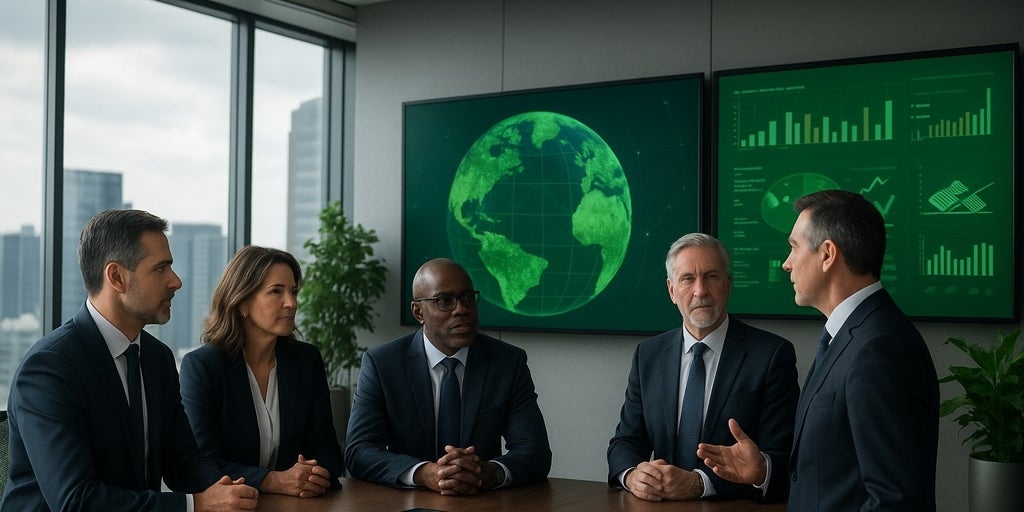Sustainability, a key business opportunity

CEOs are shifting from ambition to activation on sustainability, with nearly all (99%) indicating their intention to maintain or expand their commitments, according to the 2025 edition of the UN Global Compact and Accenture CEO Study. Although only a small percentage (less than 15%) feel well prepared to address major global challenges—including inflation, trade, and climate change—the majority (88%) say the business case for sustainability is stronger today than it was five years ago.
"Turning the Key: Unlocking the Next Era of Sustainability Leadership" comes at a critical time, as 2024 marks the first full year in which the 1.5°C threshold set by the Paris Agreement has been surpassed. The report offers one of the most comprehensive views of CEO perceptions of sustainability, published in conjunction with the 25th anniversary of the founding of the UN Global Compact.
Commenting on the study’s findings, Sanda Ojiambo, CEO and Executive Director of the UN Global Compact, said: “CEOs are crystal clear: sustainability has moved from a moral imperative to a core business. As the world surpasses the 1.5°C threshold and with an annual SDG financing gap of $4.3 trillion, the private sector must close the execution gap: embed sustainability into strategy and culture, scale innovation along value chains, and collaborate to create regulations that reward long-term business value. Companies that act on these findings will build resilience, unlock growth, develop industries, stimulate economies, and accelerate the achievement of the Sustainable Development Goals.”
The CEO Study 2025 proposes a pragmatic roadmap with five key elements to unlocking momentum at scale: collaborate on regulatory matters; harness consumer demand; expand access to technology; improve skills for the future; and lead with credibility and purpose. CEOs are already preparing for a more regulated future: 92% say strong global governance and unified policy are important or critical; 95% say regulatory compliance is a key organizational priority; and 84% believe their companies are ready to address upcoming sustainability regulations.
At the same time, the influence of consumers is gaining ground, along with that of governments, workforces, and even investors. Ninety-eight percent agree that the private sector can drive progress through sustainable products and services, and 96% advise their successors to integrate sustainability into the company's vision and culture. However, gaps persist, particularly around digital tools to track and measure sustainability performance along value chains, which can limit companies' ability to fully respond to growing demand.
The report also reveals that competencies in governance and the use of technologies for forward-looking risk management continue to lag: only one in four (26%) CEOs report having dedicated scenario planning teams, and even fewer (less than 15%) feel well prepared to address major macroeconomic and sustainability challenges. And while 96% of CEOs say innovation and technology are essential to achieving global sustainability goals, only 27% are considering leveraging digital tools for sustainability monitoring and measurement.
“Business leaders recognize that technology, data, and artificial intelligence are key to achieving their sustainability goals. However, significant gaps remain in their effective implementation,” said Stephanie Jamison, global head of Resources and Sustainability at Accenture. “Across all industries, our clients are looking to transcend siloed projects and embrace a multigenerational approach that aggregates knowledge, accelerates execution, and optimizes costs. This can evolve into a sustainable growth model that integrates sustainability commitments with bold, AI-powered reinvention, and is fully embedded in business strategy, rather than an afterthought.”
The UN Global Compact is the United Nations' leading initiative on corporate sustainability worldwide. It has over 20 years of experience and more than 60 local networks worldwide, including the Spanish network, which has been one of the first national platforms of the UN Global Compact since its creation. It is also among the top three UN Global Compact local networks with the largest number of participants, with over 1,800 in Spain. Its objective is to promote the implementation of the Ten Principles of the Global Compact while promoting the integration of the Sustainable Development Goals in the business sector, being the only organization mandated by the United Nations for this purpose.
ABC.es





